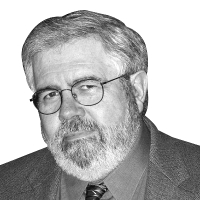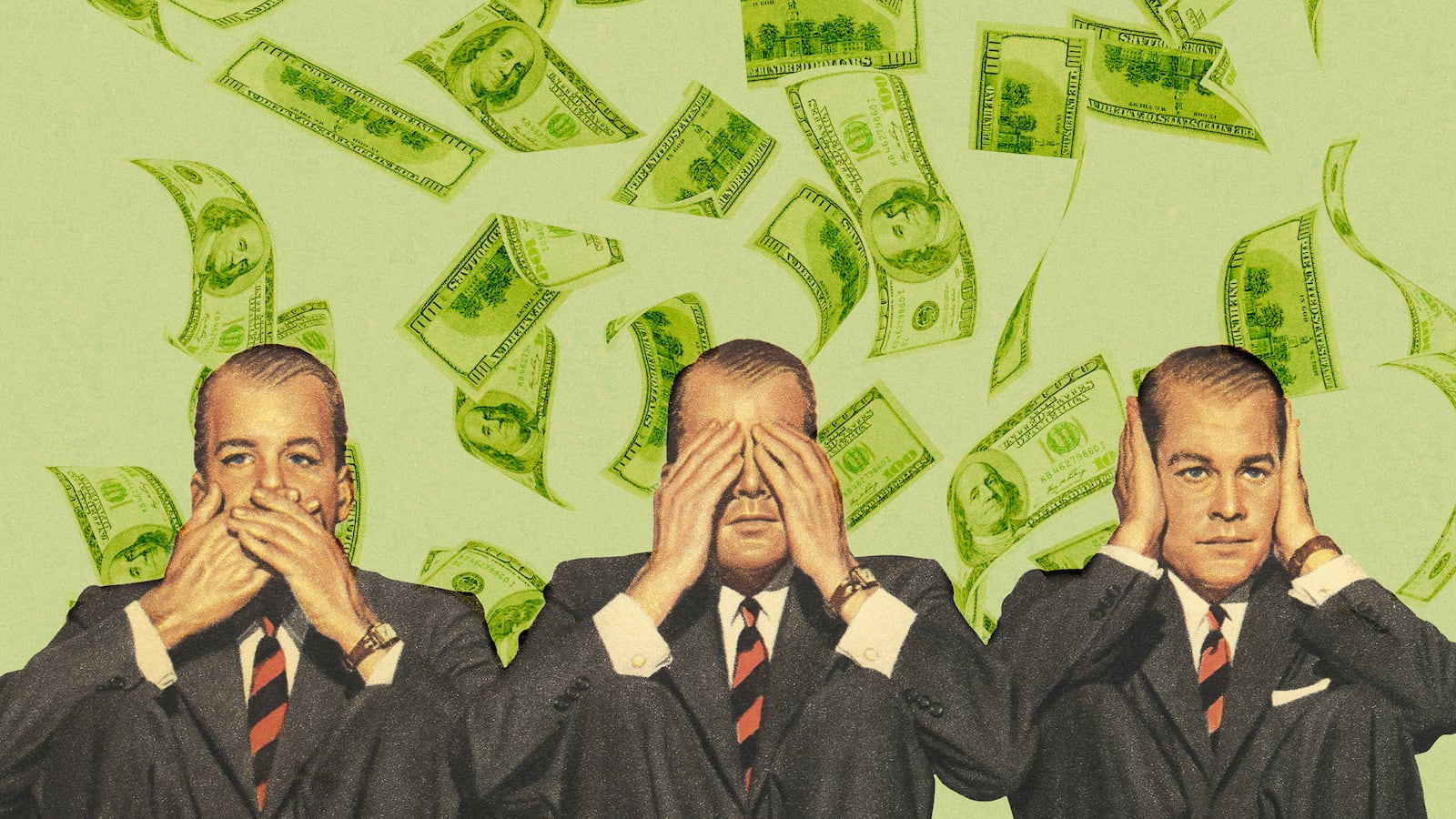The Panama Papers revealed this week how billions of dollars secretly moved around the world to benefit a Saudi king, the president of Argentina, the prime minister of Iceland (who is reportedly resigning because of them), allies of Russian President Vladimir Putin, and about 120 other politicians, along with business owners and professional athletes.
But that’s just money porn and political secrets from 11 million leaked documents spanning 39 years created by Mossack Fonseca, a law firm with offices in Panama and 38 other countries, that specializes in helping clients hide money.
The German newspaper Süddeutsche Zeitung shared the firm’s leaked files through the International Consortium of Investigative Journalists. The real scandal revealed by more than 100 journalists in a year-long collaborative project that teased hidden connections among the global elite from those files, lies in something much bigger and more sinister.
Fascinating as the details are, they show us only what took place in one room, the Mossack Fonseca room, of what can be thought of as a sprawling mansion of corruption.
It is a mansion that major governments can demolish through laws, regulations, and investigations. Yet decade after decade the mansion expands while Congress restricts the budget to pursue illicit cash flows and at least three states pass laws that help the crooks.
Mossack Fonseca says it did nothing illegal. We have good reason to doubt that, as we shall see.
Congress has known about such offshore cash abuses for decades. I first wrote about corrupt offshore accounts four decades ago, when the story was far from new.
Yet solving this problem is neither difficult nor hard. Still, the American government, so far, has generally said no dice.
The value in the leaked documents is that they put faces, famous and powerful faces, on what until now has been an abstract issue.
Gerard Ryle, the consortium director, said “for the first time we are seeing at scale and almost on a day-by-day basis from 1977 until the end of 2015” how 12 current and former world leaders and others secretly transferred and hid as much as $200 million in a single transaction.
Jack Blum, a former Senate investigator who spent decades exposing global financial abuses and who assisted the journalists, told me the hidden-money system prospers because major banks and their “lawyers in New York and London hand off the dirty work to this firm and others like it that operate in jurisdictions where there is no rule of law or no one worries about enforcement.”
***
The Organization for Economic Cooperation and Development, which represents countries with modern economies, reached an agreement in 2014 on sharing information across borders to catch crooks and terrorists.
But while countries around the world signed, the United States has not. Neither has Panama, though an earlier bilateral tax treaty may explain why so few Americans were listed in the Panama Papers.
Worse, state lawmakers in Delaware, Nevada, and Wyoming have passed laws that help embezzlers, drug lords, kleptocrats, Mafia bosses and other crooks.
These three states let crooks create companies without revealing their names. They do this by paying fronts, known as nominees, a practice neatly explained in the consortium’s reports.
When the FBI, IRS, SEC, or lawyers for estranged spouses, business partners, and others hunt for hidden money, these three states protect the crooks with an impenetrable legal barrier to learning the identities of the true owners. Think of these laws as the State Thieves, Embezzlers And Liars (STEAL) Protection Acts.
These same laws and lax federal enforcement make it easy for terrorists to send money to finance bombings and other attacks.
Federal financial flow controls are so slipshod that the W-8BEN-E, an IRS form to identify foreign owners so their U.S. dividends and other American income can be taxed, does not accurately line up with the disclosure regulations. That creates a loophole big enough to slip billions of illicit dollars out of the country undetected.
While the Mossack Fonseca law firm says it did nothing illegal, the leaked documents reveal that it sent an employee to Nevada to hide and destroy records in 2014. An employee identified only as Andres was sent “to Nevada (and) cleaned up everything and he brought all the documents to Panama.”
That occurred after Jürgen Mossack, a named partner, testified under oath that his Panama City law firm did not “control the internal affairs or daily operations” of its Nevada business that created shell corporations using nominees to hide the identities of actual owners.
The law firm told the investigative reporters, despite the email, that it never destroyed or hid documents relevant to any investigation or litigation.
Blum, the former Senate investigator, told me “the overarching problem is lawyers and business planners in places that purport to be subject to the rule of law simply hand off all the dirty work to people in the offshore world who are not subject to any law or operate in jurisdictions where nobody is likely to do anything to enforce the law.”
The United States, Blum added, “deliberately protects this system. Treasury refuses to even endorse requiring disclosure of beneficial ownership information on corporations” formed under the laws of those three states.
Congress has the power under the interstate commerce clause to require such disclosure.
***
The IRS employs America’s top experts at chasing money. But since 2004 it has not gotten nearly as much money as it says it can effectively use to pursue terrorist finance.
That’s when the George W. Bush administration rejected a request for an additional $12 million to pursue terrorist finances at a time when American troops were fighting in Iraq and Afghanistan and the administration warned another terrorist attack could come at any time.
That $12 million, a 50 percent increase in the tiny budget of the terrorist finance hunters budget, is a trivial sum by federal budget standards, but the White House and Treasury told me back then it was too much of a burden for American taxpayers to bear and other priorities took precedence.
Since Congress, the British Parliament and other legislative bodies possess abundant power to prevent undetected cash movements across borders, to expose the account owners and to pursue the civil and criminal misconduct exposed in the leaked documents, an obvious question arises. Why do they let the hidden money system flourish?
The Constitution’s commerce clause gives our Congress the power to regulate banks and cash flows. It can deny access to American banks and money transfer systems to countries and institutions that help hide corrupt money. And it can fund investigations large enough and loud enough to scale the problem back from an Amazon of corrupt cash to a trickle.
But big banks, many of them named in the Panama Papers, and white-shoe law firms rake in big fees helping hide money. As Blum noted, they do some of the work, then hand off the illegal aspects to firms in countries where tax fraud, money laundering, and hiding assets are perfectly legal or the laws go unenforced.
So why does Congress not act? Because it values the easy revenue for the banks and their lawyers more than the integrity of the world financial system and—though unintentionally—than protecting you from terrorist plots.
Pulitzer Prize winner and recipient of an IRE medal and the George Polk Award, David Cay Johnston is author of five books and the upcoming The Prosperity Tax: A New Federal Tax Code for the 21st Century Economy. He is a Distinguished Visiting Lecturer at Syracuse University College of Law and Whitman School of Management, and also writes for Investopedia and Tax Notes.






